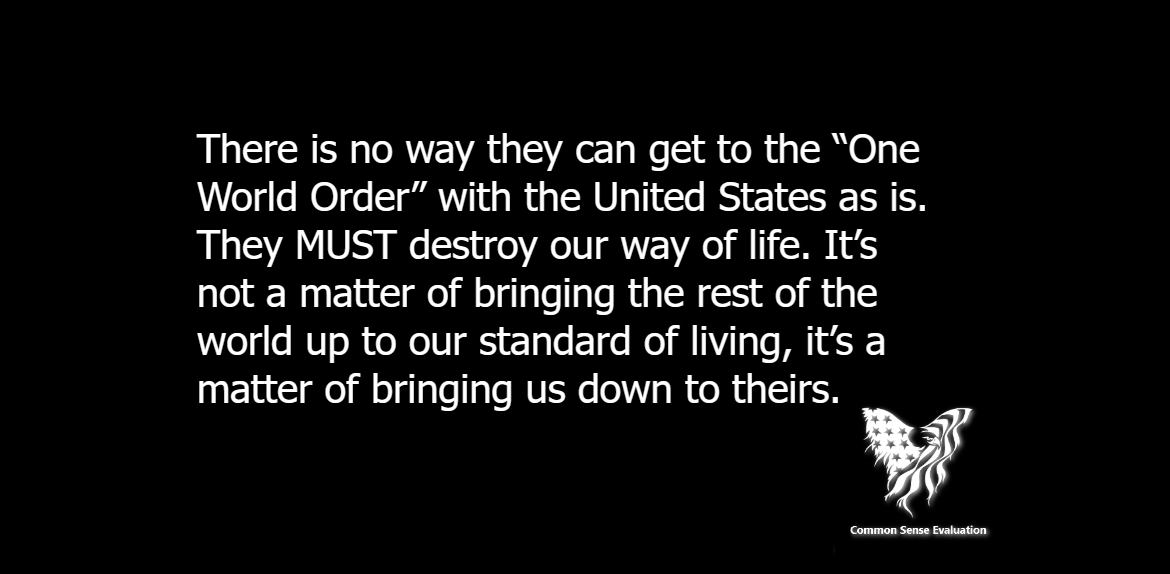There is no way they can get to the “One World Order” with the United States as is. They MUST destroy our way of life. It’s not a matter of bringing the rest of the world up to our standard of living, it’s a matter of bringing us down to theirs.
Tag: New World Order
Smartphone Society: The Impact on Attention Spans and Work Ethics
In a world dominated by screens and notifications, it’s no secret that we live in a smartphone society, and they have become an integral part of our daily lives. However, the excess use of these devices may be silently eroding our motivation and, in some ways, mirroring the effects of another prevalent habit – excessive marijuana use. Let’s dive into the impact of smartphone addiction and its potential correlation with a perceived decline in work ethics and attention spans among the younger generation.
The Digital Daze: How Smartphones Steal Your Motivation
Smartphones, the pocket-sized wonders that keep us connected, informed, and entertained, may also be subtly robbing us of our motivation. The constant influx of social media updates, instant messages, and the allure of endless scrolling create a digital vortex that can easily pull us away from our goals and aspirations.
The issue lies in the instant gratification these devices provide. Whether it’s a quick dopamine hit from a notification or the satisfaction of completing a level in a mobile game, our brains become wired for immediate rewards. This can lead to a diminishing appetite for the delayed gratification that comes with putting in effort toward long-term goals.
A Parallel Paradox: Comparing Smartphone Addiction to Marijuana Use
Surprisingly, the excess use of smartphones shares some parallels with the effects of excessive marijuana use. Both can induce a sense of lethargy and hinder motivation. While the mechanisms at play are different, the end result can be eerily similar – a lack of drive and ambition.
Marijuana, known for its calming and sedative effects, can create a state of contentment that may deter individuals from pursuing challenging tasks. Similarly, the constant stimulation provided by smartphones may create a false sense of accomplishment, discouraging individuals from engaging in activities that require sustained effort.
The Work Ethic Dilemma: Are Smartphones to Blame?
As concerns about the work ethic of the younger generation surface, it’s essential to consider the role smartphones play in this narrative. The ability to instantly access information and entertainment may contribute to a mindset that values quick fixes over the time and effort required for meaningful work.
Moreover, the constant connectivity facilitated by smartphones blurs the boundaries between work and leisure. This lack of separation can lead to burnout, as individuals find it challenging to disengage and recharge. The result is a generation that may struggle to develop a robust work ethic, hindered by the digital tendrils that never truly release their grip.
The Attention Span Quandary: Are Smartphones Shortening It?
In a world of instant tweets and bite-sized content, concerns about dwindling attention spans are valid. Smartphones, with their constant barrage of information, may contribute to a diminished ability to focus on tasks that require sustained concentration.
The quick pace of digital communication and the habit of multitasking fostered by smartphones may train the brain to skim the surface rather than delve deep into complex matters. This trend raises questions about the implications for problem-solving skills and critical thinking, essential components of a well-rounded and motivated individual.
A Sinister Plot or Unintended Consequences?
As we ponder the potential consequences of excessive smartphone use, some may question whether there’s a deliberate effort behind it all. Could it be part of a grand design by a globalist cabal to shape a generation that is more malleable and less resistant to a New World Order?
While this idea might seem far-fetched, the reality is that unintended consequences often accompany technological advancements. It’s essential to critically examine the impact of smartphones on motivation and work ethic without succumbing to conspiracy theories.
Final Thoughts
The excess use of smartphones poses a significant challenge to our motivation, work ethic, and attention spans. Drawing parallels with other habits, such as excessive marijuana use, provides a unique perspective on the potential consequences of our digital dependencies. Whether it’s a carefully orchestrated plot or an unforeseen side effect, addressing these issues is crucial for cultivating a generation that can navigate the complexities of the digital age while maintaining motivation and purpose.
Unveiling the Globalist Agenda: The Ominous Path Towards a New World Order
In recent years, a powerful and shadowy force has been stealthily pushing a seemingly progressive agenda onto society, advocating for the acceptance of transgenderism and grooming as the norm. While many consider these movements as part of a noble fight for human rights and inclusivity, an alternative and darker perspective has emerged. This article delves deep into the intriguing narrative that suggests globalists are exploiting these societal changes to dismantle the fabric of our world and pave the way for a Marxist New World Order.
The Rise of Transgender Acceptance
The first step in the alleged globalist plan is the promotion of transgender acceptance. Advocates argue that transgender individuals should be treated with respect and granted equal rights, a stance that many of us can stand behind. However, this push is not solely about empowering a marginalized group but rather a strategic move to weaken societal norms.
By dismantling the traditional binary view of gender, the globalist elite can blur the lines between identity, destabilizing established cultural norms and traditions. Consequently, this erosion of societal foundations lays the groundwork for a more malleable and compliant population, paving the way for the next phase in their sinister agenda.
The Controversy of Grooming
The topic of grooming is a contentious and sensitive issue that has gained widespread attention in recent times. Grooming, the act of manipulating and exploiting vulnerable individuals, has been co-opted by the globalist narrative as another means to achieve their malevolent goals.
By promoting leniency towards grooming, the globalists aim to undermine traditional family structures and moral values. As trust in institutions erodes, they capitalize on the resultant disarray, ultimately positioning themselves to seize control over a fractured society.
The Puppeteers Behind the Curtain
To understand how these movements serve the globalist cause, one must scrutinize the unseen hands guiding this grand orchestration. Allegedly hidden behind the veneer of philanthropy and progressive ideals, the globalist elite comprises influential figures within the highest echelons of politics, finance, and media.
These puppeteers control information dissemination, using media outlets to shape public opinion and sway minds. With the mainstream narrative in their grip, they manipulate the masses, nudging society towards their desired path while shrouding their true intentions in darkness.
The Power of Distraction
While the world becomes preoccupied with debates on gender and identity, the globalist masterminds work silently in the background, tightening their grasp on power. Distraction proves a potent tool, as public attention remains fixated on trivialities while the world inches ever closer to a seemingly unavoidable cataclysm.
The globalists play a game of divide and conquer, perpetuating social conflicts to distract us from their long-term plans. By pitting us against one another, they weaken our collective strength and make it easier to impose their vision of a New World Order.
Towards a Marxist New World Order
The globalist endgame culminates in the establishment of a Marxist New World Order (The Great Reset), a system in which individual liberties and free will are stripped away, leaving a heavily centralized and authoritarian regime in control. This so-called utopia is little more than a dystopian nightmare, with the globalist elite reigning supreme while the rest of humanity languishes under their rule.
Final Thoughts
As the curtains draw to a close on this chilling exposé, the sinister truth behind the globalist agenda becomes ever more apparent. The acceptance of transgenderism and grooming is not merely a push for equality and compassion; it is a strategic maneuver, a devious means to dismantle the very foundations of our society.
While the masses remain blissfully unaware of the puppeteers pulling the strings, the globalist elite continues to exploit our vulnerabilities, sowing seeds of division and chaos. With each passing day, the darkness grows, engulfing us in a malevolent embrace that seeks to suffocate our freedoms and extinguish our individuality.
The path they pave towards a Marxist New World Order looms ominously on the horizon, shrouding the world in a cloak of oppression and control. In their envisioned utopia, autonomy and liberty will become distant memories, replaced by a pervasive sense of powerlessness and compliance. You will own nothing and be happy.
To combat this existential threat, we must wake from our complacency and face the cold, hard truth. The battle ahead is not for the faint-hearted, as we grapple with the machinations of the most powerful and enigmatic forces the world has ever known.
Let this serve as a stark reminder that we can no longer afford to be mere spectators in the unfolding drama of our civilization. Only by arming ourselves with knowledge, unity, and unwavering determination can we hope to resist the allure of the abyss and reclaim our destiny from those who would consign us to the depths of a dystopian nightmare.
The road ahead is fraught with peril, but it is not an insurmountable one. We must face the darkness head-on, for only by confronting the shadows can we bring forth the light of truth. The fate of our world hangs in the balance. It is up to us to determine whether we succumb to the malevolent grasp of the globalist agenda or rise as a united force to preserve the sanctity of human spirit and freedom. The choice is ours, but the consequences are far-reaching and irrevocable. May we find the strength to face the abyss and emerge victorious, for the future of humanity depends on it.
The Great Reset: Unraveling the Climate Change Deception
As the world grapples with the ongoing issue of climate change, a more sinister agenda seems to be lurking beneath the surface. What if the widely accepted narrative of a warming planet and the need for drastic global action to combat climate change is merely a facade for a greater plan? A plan that seeks to usher in a new world order, a globalist government, and a “Great Reset” that would fundamentally alter the fabric of society as we know it. In this article, we offer the controversial suggestion that climate change is fake and explore how it is being manipulated to fulfill a hidden agenda that goes far beyond environmental concerns.
The Climate Change Controversy: Unveiling the Truth Behind Skepticism
Amidst the widespread alarm over climate change, a growing number of skeptics have emerged to challenge the mainstream narrative. These skeptics posit compelling arguments that cast doubt on the legitimacy of climate change as an imminent and catastrophic threat. As we look deeper into their claims, we expose a reality where data manipulation, biased research, and vested interests have obscured the genuine climate picture.
Data Manipulation and Exaggeration
One of the primary concerns voiced by climate change skeptics is the manipulation and exaggeration of scientific data. Allegations abound regarding cherry-picking data sets to emphasize warming trends while downplaying natural climatic cycles that could explain temperature fluctuations. Additionally, critics point to discrepancies between climate models and real-world observations, suggesting that predictions of impending climate catastrophes may be exaggerated for dramatic effect.
Institutional Bias and Funding
The influence of funding sources on climate research has also come under scrutiny. Government agencies and institutions are often driven by political agendas and financial interests that align with the climate change narrative. Funding tends to be directed towards research that supports the prevailing view, stifling dissenting voices and perpetuating a one-sided perspective.
Natural Climate Variability
Contrary to the climate change narrative, historical records and geological evidence reveal that the planet has experienced numerous cycles of warming and cooling over millennia, long before human industrialization became a major factor. Current warming trends could be a part of natural fluctuations rather than solely caused by human activity.
Lack of Consensus Among Scientists
While mainstream media often portrays climate change as a universally accepted scientific consensus, there are dissenting views within the scientific community. Prominent scientists, researchers, and climatologists challenge the prevailing narrative, highlighting the complexity of climate dynamics and the need for continued study and open debate.
Alternative Explanations for Extreme Events
Linking extreme weather events directly to human-induced global warming is misleading. Natural factors, such as solar activity, ocean currents, and volcanic eruptions, play a more substantial role in driving extreme weather events. Relying solely on human activity as the culprit may oversimplify the intricate and multifaceted nature of climate dynamics.
The Globalist Agenda
Amidst the heated climate change debate, there are whispers of a grander agenda at play – the “Great Reset.” Advocates of this movement envision a world in which a centralized global government takes control of economic, social, and political structures. This “reset” would effectively redistribute wealth, eliminate individual freedoms, and concentrate power in the hands of an elite few. Climate change serves as a convenient pretext to implement policies that would support this transformative vision.
The Role of Media and Corporate Interests
The media’s role in shaping public perception cannot be underestimated. Mainstream media outlets perpetuate the climate change narrative, promoting fear and urgency while suppressing dissenting viewpoints. Behind the scenes, influential corporate interests may be manipulating the discourse to their advantage, capitalizing on the crisis to further their own agendas. The symbiotic relationship between the globalist elites and the media conglomerates helps in ensuring that the public remains unaware of the deeper implications of climate change activism.
The Green Economy: A Trojan Horse for Control
One of the main tenets of the climate change movement is the push for a green economy. Renewable energy sources, carbon credits, and sustainability initiatives have become the new buzzwords in the business world. However, skeptics argue that this so-called green revolution is nothing more than a carefully crafted facade. Under the guise of environmental responsibility, the “Great Reset” seeks to consolidate power and control over industries, while ordinary citizens bear the brunt of ever-increasing regulations and taxes.
The Threat to Individual Liberties
As the “Great Reset” gains traction, individual liberties and personal freedoms are increasingly at risk. Governments around the world are using climate change as a pretext to justify intrusive surveillance measures and restrictive policies. The erosion of privacy rights and civil liberties becomes a necessary trade-off for the elusive promise of a sustainable future.
Final Thoughts
As we delve deeper into the shadows of the climate change debate, a darker reality emerges. The purported crisis of climate change seems to be a smokescreen for a much larger and sinister plan: The Great Reset. Spearheaded by influential figures like Klaus Schwab, the founder and executive chairman of the World Economic Forum, this movement seeks to reshape the world in their image, erasing the principles of freedom, democracy, and sovereignty that have defined humanity for centuries.
Klaus Schwab’s ties to The Great Reset cannot be ignored. A powerful proponent of global governance, he envisions a future where nations relinquish their autonomy in favor of a centralized authority. Under the guise of saving the planet, Schwab and his globalist cohorts aim to steer humanity towards a dystopian reality where individual freedoms are replaced by compliance, and personal choices are dictated by a faceless bureaucracy.
The green economy, portrayed as a noble endeavor to protect the environment, is, in reality, a Trojan horse for control. The implementation of renewable energy sources and sustainability initiatives will only serve to further entrench the globalist elite’s grip on industries and resources, while ordinary citizens endure the brunt of oppressive regulations and economic hardship.
The media plays a vital role in perpetuating the climate change deception. Mainstream outlets, often influenced by corporate interests aligned with the globalist agenda, suppress dissenting voices and manipulate public opinion, making it challenging to uncover the truth. The unwavering narrative of climate emergency serves the purpose of conditioning the masses to embrace radical changes, without questioning the hidden motives behind such a transformation.
As governments exploit climate change as a justification for increased surveillance and control, our individual liberties hang in the balance. The “Great Reset” requires a compliant populace, stripped of their rights and freedoms, and molded into cogs in the globalist machine.
The true cost of The Great Reset is immeasurable. It threatens to destroy the very fabric of society, replacing it with a dystopian Marxist nightmare where power is concentrated in the hands of an elite few. It is crucial to remain vigilant, to question the narratives pushed upon us, and to resist the erosion of our rights and freedoms.
In the face of this darkness, we must stand united, rejecting the false promises of a new world order and defending the values that have long held us together. The future of humanity hangs in the balance, and only through awareness, critical thinking, and collective action can we safeguard our liberty and resist the shadows of The Great Reset.
The Round Table Group
Throughout history, secretive organizations have captivated the imagination of many. One such group that has garnered attention and sparked countless conspiracies is the Round Table Group. With its origins rooted in the late 19th century, the Round Table Group has become a subject of fascination and speculation. This article aims to explore the history, objectives, and some of the conspiracies surrounding this enigmatic organization.
The Historical Origins
The Round Table Group was founded in 1891 by British imperialist Cecil Rhodes, who made a fortune in mining and diamond industries in Southern Africa. Rhodes envisioned a secret society that would work towards promoting the British Empire and furthering its influence across the globe. The group took its name from King Arthur’s legendary round table, symbolizing equality and collaboration.
Objectives and Influence
The primary objective of the Round Table Group was to maintain and expand the British Empire’s dominance. The members, consisting of influential figures from various fields, aimed to achieve this through a strategy known as “Anglo-Saxonism.” They sought to unite the English-speaking nations, including Britain, the United States, Canada, Australia, and New Zealand, to form an unbreakable alliance.
The Round Table Group played a significant role in shaping British foreign policy, particularly during the early 20th century. It exerted its influence through various channels, including influential think tanks, educational institutions, and political lobbying. The organization was instrumental in establishing the Royal Institute of International Affairs (RIIA) in London and its American counterpart, the Council on Foreign Relations (CFR), in New York City. Both institutions have since played pivotal roles in shaping global affairs and policy.
Conspiracies Surrounding the Round Table Group
As with any secretive organization, the Round Table Group has attracted its fair share of conspiratorial claims. Here are a few notable theories:
- Global Domination: According to this theory, the Round Table Group is purported to be an elitist organization striving for global domination through control of world governments, economies, and resources. It alleges that the group influences key decision-makers and orchestrates events to serve its own interests.
- New World Order: This conspiracy theory suggests that the Round Table Group is part of a larger plan to establish a “New World Order.” It claims that the organization aims to create a unified global government, eroding national sovereignty and individual freedoms in the process.
- Manipulation of World Events: Some theories suggest that the Round Table Group plays a clandestine role in orchestrating significant world events, such as wars, financial crises, and political assassinations. Proponents of these theories argue that the organization operates behind the scenes, pulling the strings of power.
- Secretive Control of Media: Another conspiracy alleges that the Round Table Group controls mainstream media outlets, allowing it to shape public opinion, suppress dissent, and control the dissemination of information.
The shadows cast by the Round Table Group stretch far and wide, leaving a trail of suspicion, manipulation, and hidden agendas. While its stated objective was the maintenance of the British Empire’s dominance, there are darker theories that suggest a more sinister motive.
Conspiracy theories surrounding the Round Table Group paint a grim picture of a clandestine organization seeking nothing less than total global control. These theories propose that the group manipulates world events, controls governments and economies, and molds public opinion through its influence over mainstream media. The idea of a hidden elite orchestrating wars, financial crises, and political assassinations to further their own agenda is chilling, to say the least.
The concept of a “New World Order” emerges from the shadows, suggesting that the Round Table Group is just one piece of a larger puzzle—a puzzle that aims to dismantle national sovereignty, erode personal freedoms, and establish a monolithic global government. The implications of such a scenario are dystopian, where individual autonomy is crushed, dissent is silenced, and power lies firmly in the hands of a select few.
While it is vital to approach conspiracy theories with skepticism and critical thinking, dismissing them entirely would be a disservice to the pursuit of truth. The influence wielded by secretive organizations is undeniable, and history has shown that power often rests in the hands of a privileged few. The Round Table Group, with its web of connections and far-reaching influence, remains a compelling subject of speculation, inviting us to question the forces that shape our world.
In the end, the Round Table Group serves as a reminder that the pursuit of power and control can lead down dark paths. As we navigate the complexities of global affairs, it is crucial to remain vigilant, question the motives of those in positions of influence, and strive for a world where transparency, justice, and individual liberties prevail.




